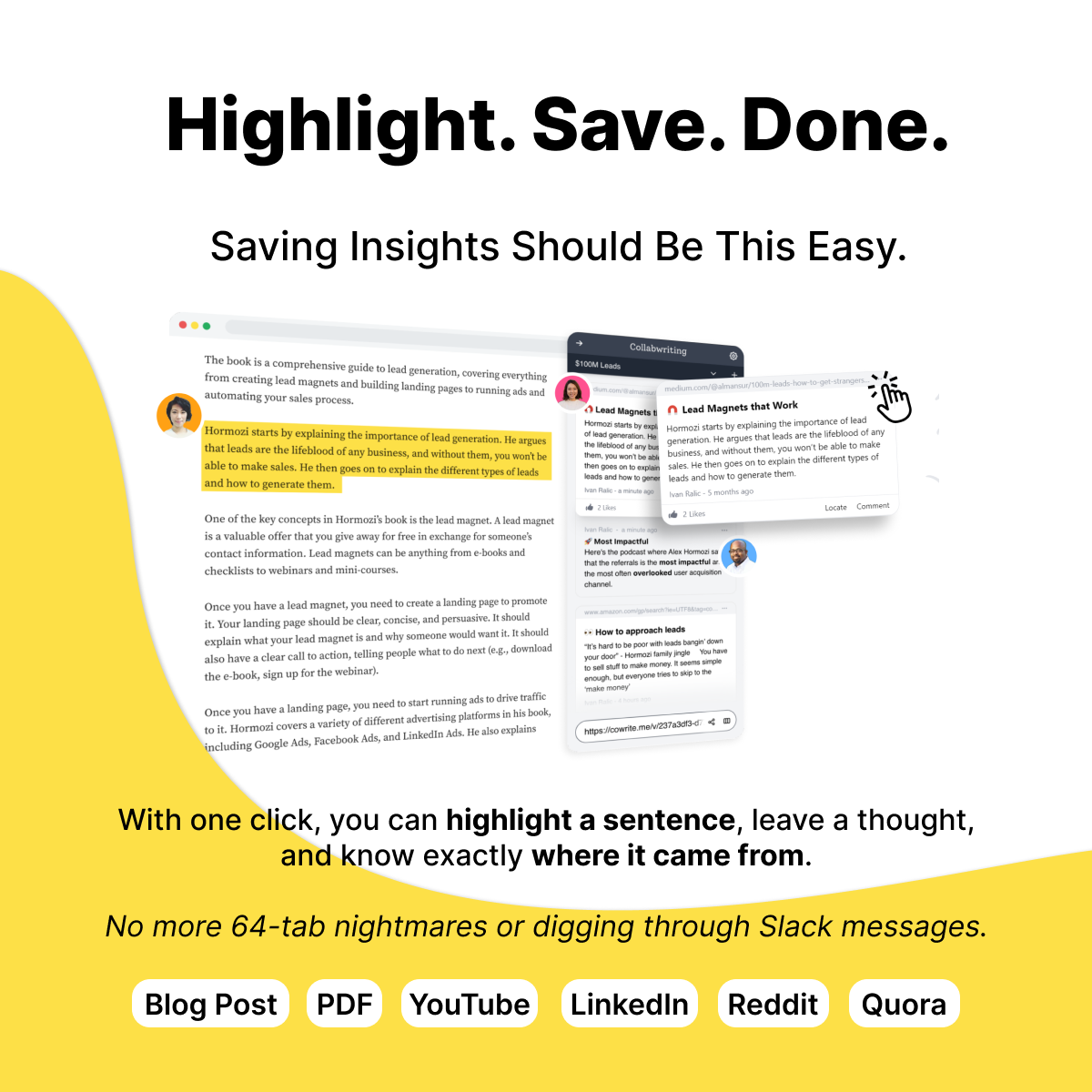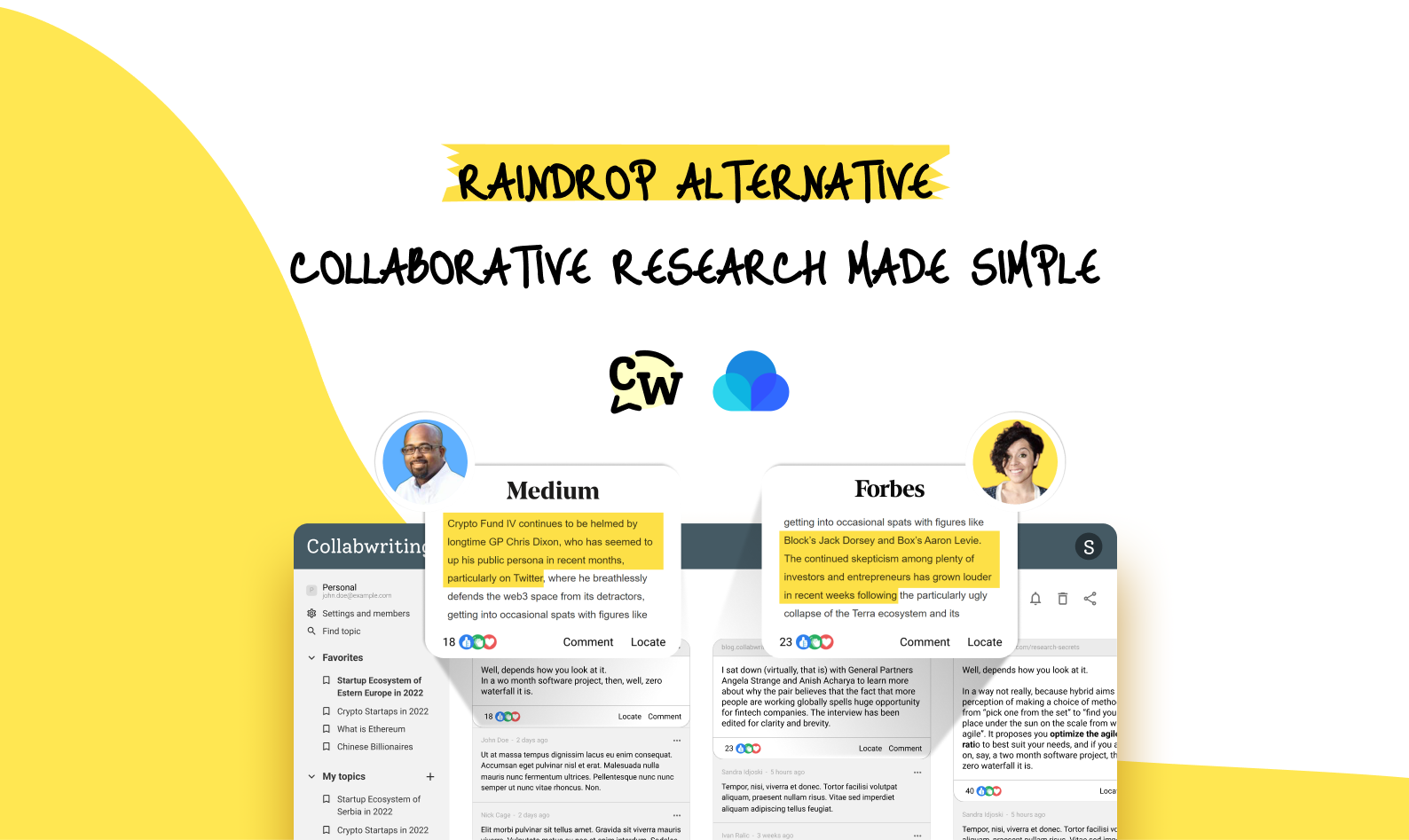Many digital experts assume people don’t like reading long-form content anymore. That’s why they focus on creating short, skimmable posts.
The truth? People don’t actually hate reading - they just want trustworthy content. They’ll read in-depth pieces if they believe the content is valuable and rooted in content research.
The internet is full of distractions, but what readers crave is information that improves their lives, helps them grow, and solves their problems. As Neil Patel puts it:
“People aren’t signing up to your list because they like you. They’re signing up because they believe you can help them with their problem.”
That’s where content research comes in. It positions you as an authority, builds trust, and keeps your audience engaged.
Authority Principle Through Content Research
The authority principle tells us people naturally trust those seen as credible experts. But authority isn’t given - it’s earned.
When you dive into research, interpret findings, and explain them in clear language, you prove you’re more than just another voice online.
You become the person who can make sense of data, uncover gaps, and provide new perspectives. That’s how you establish yourself as a trustworthy source in your niche.
Imagine running an online shop for gourmet chocolates. Most brands recycle the same generic advice. But you go deeper - you tap into expert chocolatiers and scientific insights about flavor, aroma, and tasting rituals.
By blending content research with practical tips, your advice instantly becomes more reliable than your competitors’.
The authority principle refers to a person’s tendency to comply with people in positions of authority. Humans tend to consider the judgment of certain authority figures to be more reliable than their own.
But there's more.
Turning Content Research Into Trustworthy Content
Here’s where many brands struggle: research is often complex and difficult to digest. Yet, most readers don’t want academic jargon, they want clarity.
Around 19% of adults in the U.S. between 16 and 65 can only handle Level 1 reading.
That means they’re comfortable with quick reads and short, fact-driven paragraphs.
If someone’s reading level is below Level 1, it means they can only handle very basic words. They don’t really work with full sentences or paragraphs, just short pieces of information in the simplest form.
Level 1 reading requires a bit more skill. Readers can understand basic vocabulary, read whole sentences, and manage short paragraphs. But even then, the goal is usually to find one specific piece of information in short bursts of text.
That’s why simplifying complex, college-level research - whether it’s about social surveys, mental health, or animal science can unlock a whole new world of knowledge for your audience.
This is the magic of easy-to-read, research-based content: it takes high-level information and makes it accessible. By doing so, you build stronger connections with both new and existing customers. And when people find your content valuable, they naturally recommend it to others, boosting your brand’s influence and reach.
Why Content Research Creates Trustworthy Information
A Pew Research Center survey found that 96% of Americans rely on their own research before making important decisions. Nearly half of them start online, using a variety of digital tools, such as:
- Search engines
- Forums and comments
- Online reviews
- Social media
- Podcasts
- Videos
- Apps
This clearly shows how much people depend on digital sources for information, and why trustworthy content is so important.
When your content is backed by research and evidence, it does more than just inform readers. It helps them navigate the flood of information online, avoid mistakes or misinformation, and make confident decisions.
At the same time, it strengthens trust in your brand, positions you as an authority, and encourages readers to turn to you repeatedly when they need reliable guidance.

How Trustworthy Content Builds Loyal Communities
High-quality content isn’t just about traffic- it’s about trust.
During the pandemic, people turned to online sources and communities more than ever before. Even now, they continue to look for reliable voices that help them make sense of information overload.
By combining this with regularly sharing content based on research, you shape your brand's character into that of a friendly and relatable educator and trendsetter. This, in the end, makes your reputation stronger and boosts customer loyalty.
Creating Content Your Audience Actually Wants
Creating informative and engaging posts is key to building a strong online community. To reach the right audience, your content needs to match their interests and needs.
But here’s the thing: content backed by research doesn’t always mean citing scientific papers. Sometimes, doing detailed market research can be even more valuable for making your content useful and visible.
For example, if you’re a web content creator, scientific studies might not always help, especially if they’re not relevant or go unnoticed. Instead, focusing on market research lets you understand your audience better and create content that truly resonates with them.
Here’s a simple way to do it:
Step 2: Understand their problems - You can use real facts to figure out what troubles the people you want to help. Imagine a marketer looking at studies that say pictures and videos are seen by 94% more people than just words. But don't stop at the numbers. Join online groups and talk to possible customers. This way, you can make really helpful content.
Step 3: Improve your social media sharing skills - If you want more people to follow you, you must do more than just post a few updates. You need to be smart about which websites you use, how much you write, and when you use things like hashtags (#). Find out when most people are online on sites like Facebook and Twitter, and who uses them. This will help you do better.
Experts like Apurvakumar Pandya from the Indian Institute of Public Health Gandhinagar and Pragya Lodha from Lokmanya Tilak Municipal General Hospital say that being socially connected is part of human nature.
During the pandemic, this became even more obvious - about half of our online time was spent on social media, and overall internet usage jumped by 50–70%.
That’s why it’s important to take a close look at your content. Ask yourself: Does it build trust in your brand? Does it clearly explain your product or service?
If the answer is no, it’s a sign to rethink and improve what you’re sharing. Quality, clear, and trustworthy content makes all the difference.
Want to create content backed by solid research?
Collabwriting helps you stay on top of the latest studies and turn them into posts that build authority and trust.
Conclusion - Content Research As First Step
When people search online, they’re not just looking for words, they’re looking for trustworthy content that informs and supports their decisions.
By investing in content research, you:
- Establish expertise
- Build trust with your audience
- Improve customer loyalty
- Differentiate your brand from generic competitors
It’s time to ditch the fluffy, recycled blog posts and embrace content backed by solid research. Your curious customers will thank you for it and reward you with their trust.






![The Best Tool for Collaborative Research in Content Marketing Teams [2026]](/content/images/2025/12/image--5-.png)

![5 Tools Marketers Use to Organize Research - Compared [2026]](/content/images/2025/11/cover-4-1.png)

![Build Credibility in Research: Smart Way to Verify Information and Track Sources Easily [2025]](/content/images/2025/10/covers-for-blog--7--1.png)

![How Marketers Can Turn LinkedIn Content into Collaborative Research [2025]](/content/images/2025/10/covers-for-blog--8-.png)
![Best Readwise Alternative for Personal & Team Research [2026]](/content/images/2025/09/Frame-814--3-.png)

